Hi there,
With authoritarianism sharply on the rise and so much at risk—including our most basic rights—we're counting on our audience like never before to support our work and help us hold governments and corporations to account. Right now, less than 1% of people who count on Democracy Now!'s news, donate to support our work. If even 1% of our global audience made a donation of any amount today, it would cover our costs for 2025.Thanks to a group of generous donors, all donations made today will be TRIPLED, which means your $15 gift is worth $45. With your contribution, we can continue to go to where the silence is, to bring you the voices of the silenced majority. Every dollar makes a difference. Thank you so much.
Happy News Year!
Democracy Now!
Amy Goodman
Hi there,
With authoritarianism sharply on the rise and so much at risk—including our most basic rights—we're counting on our audience like never before to support our work and help us hold governments and corporations to account. Right now, less than 1% of people who count on Democracy Now!'s news, donate to support our work. If even 1% of our global audience made a donation of any amount today, it would cover our costs for 2025.Thanks to a group of generous donors, all donations made today will be TRIPLED, which means your $15 gift is worth $45. With your contribution, we can continue to go to where the silence is, to bring you the voices of the silenced majority. Every dollar makes a difference. Thank you so much.
Happy News Year!
Democracy Now!
Amy Goodman
Non-commercial news needs your support.
We rely on contributions from you, our viewers and listeners to do our work. If you visit us daily or weekly or even just once a month, now is a great time to make your monthly contribution.
Please do your part today.
HeadlinesJune 20, 2011
NATO Bombs Libyan Home, Killing Nine Civilians, Including Two Babies
NATO warplanes have bombed a home in a residential section of Tripoli, killing nine civilians, including two babies. Libyan officials said another 18 people were injured. NATO admitted to carrying out the strike but blamed the bombing on a “weapons systems failure.” A Libyan government spokesperson described the NATO strike as a “pathetic attempt to break the spirit of the people of Tripoli.”
Obama Rejects Senior Legal Advice to Continue Libya War Without Congressional Authorization
The New York Times has revealed President Obama rejected the views of top lawyers at the Pentagon and the U.S. Department of Justice when he decided he had the legal authority to continue U.S. war in Libya without congressional authorization. The Pentagon general counsel, Jeh Johnson, and Caroline Krass, the acting head of the Justice Department’s Office of Legal Counsel, had told the White House that under the War Powers Act of 1973, Obama should have terminated or scaled back the mission after May 20. The President has the legal authority to override such legal conclusions, but the Times reports it is extraordinarily rare for it to happen. In an interview on PBS NewsHour, Senate Majority Leader Harry Reid said he supported the President’s view.
Senate Majority Leader Harry Reid: “The War Powers Act has no application to what’s going on in Libya.”
Jim Lehrer: “None?”
Senator Reid: “I don’t believe so. You know, we did an authorization for Afghanistan. We did one for Iraq. But we have no troops on the ground there, and this thing is going to be over before you know it anyway. So I think it’s not necessary.”
Gates Acknowledges U.S. in Preliminary Talks with Taliban
In news from Afghanistan, U.S. Secretary of Defense Robert Gates has acknowledged for the first time that the United States has been involved in preliminary talks with the Taliban to seek a political solution to the nearly 10-year-old war. Despite the start of the talks, Gates warned against a fast drawdown of U.S. troops.
U.S. Secretary of Defense Robert Gates: “My own view is that real reconciliation talks are not likely to be able to make any substantive headway until at least this winter. I think that the Taliban have to feel themselves under military pressure and begin to believe that they can’t win, before they’re willing to have a serious conversation.”
Iraq Claims U.S. Lost $18.7 Billion, Tripling Initial Reports
A top Iraqi official is claiming that as much as $18.7 billion of Iraqi money was lost by the United States during the first year of the U.S. occupation. A recent U.S. report put the amount unaccounted for at $6.6 billion, but Iraqi’s parliament speaker, Osama al-Nujaifi, said the actual total is three times that. The Bush administration flew in a total of $20 billion in cash into the country in 2004, but nearly all of the money is unaccounted for.
U.S. Drilling Companies Stand to Earn Billions in Iraq Oil Deals
A group of U.S. drilling companies, including Halliburton, stand to make tens of billions of dollars in Iraq under new oil deals. International oil companies have signed contracts with four largely American oil service companies to drill for oil and build wells. The four companies are Halliburton, Baker Hughes, Weatherford International and Schlumberger.
U.S. Mayors Set to Approve Resolution Calling for End to Iraq, Afghanistan Wars
Mayors from cities across the United States are expected to approve a resolution today calling on Congress to end funding for the wars in Iraq and Afghanistan and to spend the money at home instead. A group of nine mayors signed off on the resolution on Friday. The resolution states, “The United States Conference of Mayors calls on the U.S. Congress to bring these war dollars home to meet vital human needs, promote job creation, rebuild our infrastructure, aid municipal and state governments, and develop a new economy based upon renewable, sustainable energy.”
Nebraska Nuclear Plants on Alert Following Missouri River Flooding
Massive flooding along the Missouri River has put two nuclear plants in Nebraska on alert. On Sunday, the Cooper Nuclear Station declared a low-level emergency as the Missouri River threatened to flood the nuclear power facility. Authorities say the plant, which is about 70 miles south of Omaha, will have to close down if the river rises another three inches. Meanwhile, the Fort Calhoun nuclear power plant, located about 20 miles north of Omaha, has been shut down since April 9, in part due to flooding.
Federal Regulators Work Closely with Nuclear Power Industry to Weaken Standards
In nuclear news, a new exposé by the Associated Press has revealed that federal regulators have been working closely with the nuclear power industry to keep the nation’s aging reactors operating within safety standards by repeatedly weakening those standards, or simply failing to enforce them. Just last year, the U.S. Nuclear Regulatory Commission weakened the safety margin for acceptable radiation damage to reactor vessels—for a second time.
Spain: Tens of Thousands March to Protest Unemployment, Failing Economy
Tens of thousands of Spanish protesters marched Sunday in Madrid to protest high unemployment and bleak economic prospects. Other protests were held across Spain. The unemployment rate in Spain has topped 21 percent—the highest in the 17-nation Eurozone.
Jose Luis, protester: “Politicians continue to ignore us. They keep saying we are protesting against the crisis because of unemployment. What we are protesting against is their attitude. We don’t like it. They ignore us when we are out here in the streets. We have a clear message, but they water it down, manipulate it, and say other things. As they ignore us, we have to continue coming out here to see if they finally listen.”
Saudi Arabian Women Drive in Protest of Government Ban
In Saudi Arabia, women have responded to social media calls to challenge the nation’s ban on women driving by posting accounts and pictures of themselves behind the wheel. Online groups called for a “day of defiance” on Friday, drawing more than 150,000 Facebook supporters. Resistance to the conservative law was inspired in part by the recent arrest of two Saudi women who defied the ban. The activists argue that they have a right to independence.
Saudi Arabian woman driver: “All we want to do is to have our needs met without depending on drivers. It is not out of love for driving or traffic or the experience. All this is about is that if I wanted to go to work, I can go. If I needed something, I can go and get it, and I think that society is ready to welcome us.”
Syria President Vows Dialogue While Blaming Uprising on “Saboteurs”
In a nationally televised address, Syrian President Bashar al-Assad vowed to begin a national dialogue on reform, but he blamed the recent popular uprising on “saboteurs.” Assad said that no political solution was possible with people carrying weapons. Assad said, “What is happening today has nothing to do with reform, it has to do with vandalism.” The speech marked just the third time Assad has addressed the country since the protests began in March. Rights groups say Assad’s forces have killed at least 1,300 civilians since March. Syrian troops are now being accused of preventing civilians from crossing into Turkey to escape the violent state crackdown.
Pakistan: Drone Strike Kills Seven amid Protests
In news from Pakistan, U.S. drone strikes in the Kurram tribal area have killed at least seven people. Meanwhile, around 1,000 Pakistanis held a protest against drone strikes earlier today in North Waziristan.
Pakistani Journalist Beaten by Suspected Intelligence Officers
In news from Pakistan, a 32-year-old journalist, Waqar Kiani, has been badly beaten just days after he published an account of abduction and torture by suspected Pakistani intelligence agents. Kiani works for the Guardian newspaper. Three weeks ago, another reporter, Saleem Shahzad,was beaten to death after he wrote an article alleging links between Pakistani navy officials and al-Qaeda.
Investigation Opens on Bush-Era Attempts to Discredit Iraq War Critic, Professor Juan Cole
The U.S. Senate Intelligence Committee has begun a preliminary investigation into a report that the Bush White House asked the CIA to uncover damaging personal information on University of Michigan Professor Juan Cole, a prominent critic of the Iraq War. Appearing on CNN, Juan Cole urged U.S. Attorney General Eric Holder to look into the spy operation.
Juan Cole: “And it’s just impossible for me to believe that the White House asked the CIA to Google me, that they were just passing along publicly available information. There must have been an implication that they should actively dig up some kind of dirt. And that is illegal, and it’s extremely troubling. And I believe that the Senate Intelligence Committee, the House Intelligence Committee should open investigations, should subpoena documents, should get names, should find out what was going on, who the request came from at the White House, what’s the background of this.”
New York Man Killed by Toxic Debris Added to List of Official 9/11 Deaths
A New York man who died last year after inhaling toxic debris following the collapse of the World Trade Center has been added to the list of official deaths resulting from the September 11, 2001 attacks. Sixty-three-year-old Jerry Borg’s prolonged death from pulmonary sarcoidosis was ruled a homicide by New York City’s medical examiner. Borg is the third person to be added to the list that did not die in 2001.
Former Guatemala Military Official Arrested for Involvement in Hundreds of Mass Killings
A former Guatemalan military official has been arrested for his alleged involvement in hundreds of massacres during the early 1980s. Eighty-one-year-old Hector Mario Lopez Fuentes is the highest-ranking Guatemalan official to be detained for the mass killings. The charges against him include genocide and forced disappearance. From 1960 to 1996, an estimated 200,000 people were killed and tens of thousands were disappeared by the U.S.-backed government of Guatemala.
U.N. Passes Historic Resolution Endorsing Rights of Gay, Lesbian, Transgender People
The United Nations has passed a historic resolution supporting the rights of gay, lesbian and transgender people. For the first time in history, the U.N. Human Rights Council expressed “grave concern” for abuses carried out because of sexual orientation and called for a global panel and report on discrimination based on sexuality and gender identity. The United States voted in favor of the resolution. Opponents included Russia, Saudi Arabia and Pakistan.
Southwest Wildfires Continue to Burn, John McCain Blames Undocumented Immigrants
Firefighters are now battling wildfires in Arizona, New Mexico and Texas. The “Wallow Fire” in Arizona is already considered the largest in state history. Republican Senator John McCain of Arizona is facing criticism for his claim that the fire was started by undocumented immigrants. McCain claimed in a press conference that there was substantial evidence that the fire was caused by people who have crossed the border illegally. But the U.S. Forest Service dismissed McCain’s claim, saying no such evidence exists.
British Peace Activist Brian Haw Dies at 62
The British peace activist Brian Haw has died at the age of 62. For the past decade Haw lived and slept outside the Houses of Parliament in London to protest against the wars in Iraq and Afghanistan. He began his protest in June 2001 to protest the Western sanctions against Iraq. He was a vocal critic of former British prime minister Tony Blair.
Brian Haw, activist: “I voted for Mr. Tony Blair the first time, along with many people in my country. He was the big white hope, wasn’t he, after Thatcher, the warmonger? And we hoped for something better, didn’t we? ‘I’m Christian Tony. I’m going to do right by everyone.’ Have you seen what he’s done?”
Most popular
- 1
- 2
- 3
- 4
Non-commercial news needs your support
Please do your part today.


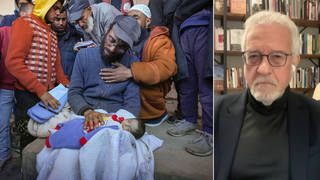
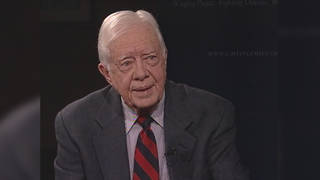
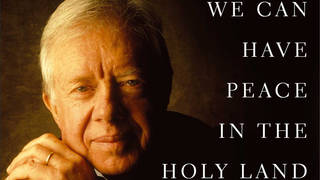





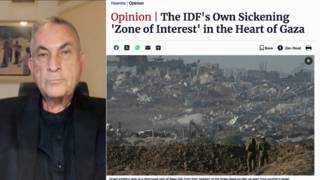
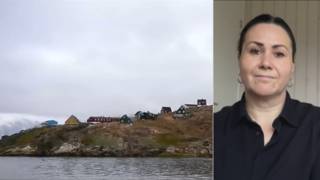
Media Options